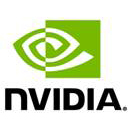NVIDIA opened the door to the development of a new generation of applications that employ computer vision, image processing and real-time data processing — with the launch of a developer platform based on the world’ s first mobile supercomputer for embedded systems.
s first mobile supercomputer for embedded systems.
The NVIDIA JetsonTK1 Developer Kit provides developers with the tools to create systems and applications that can enable robots to seamlessly navigate, physicians to perform mobile ultrasound scans, drones to avoid moving objects and cars to detect pedestrians.
With unmatched performance of 326 gigaflops — nearly three times more than any similar embedded platform — the Jetson TK1 Developer Kit includes a full C/C++ toolkit based on NVIDIA CUDA architecture, the most pervasive parallel computing platform and programming model. This makes it much easier to program than the FPGA, custom ASIC and DSP processors that are commonly used in current embedded systems.
“Jetson TK1 fast tracks embedded computing into a future where machines interact and adapt to their environments in real time,” said Ian Buck, vice president of Accelerated Computing at NVIDIA. “This platform enables developers to fully harness computer vision in handheld devices, bringing supercomputing capabilities to low-power devices.”
Tegra K1 at its Heart
At the heart of the Jetson TK1 Developer Kit is the Tegra K1 mobile processor, NVIDIA’s 192-core super chip built on the NVIDIA Kepler architecture, the world’s most advanced and energy-efficient GPU. Tegra K1’s 192 fully programmable cores deliver the world’s most advanced graphics and compute performance in a mobile form factor.
The Tegra K1 processor is based on the same Kepler architecture that powers the U.S.’s fastest supercomputer, the Titan supercomputer at Oak Ridge National Laboratories, as well the world’s 10 most efficient supercomputers. Designed from the ground up for CUDA — which has more than 100,000 developers at over 8,000 institutions, and is taught at top universities in 62 countries — Jetson TK1 Developer Kit includes the programming tools required by software developers to quickly develop and deploy compute-intensive systems.
Strong Backing
A range of developers and system builders in the industrial, robotics and medical fields have expressed support for the development platform.
Chris Jones, director of strategic technology development at iRobot Corporation, said: “Having the level of performance and energy efficiency Jetson TK1 offers can potentially support the development of robots with real-time object recognition and compelling autonomous navigation capabilities. Our experience with the previous generation CUDA development kit has already enabled us to make great progress training robots to interact more intelligently with their environment.”
Simon Collins, product manager at GE Intelligent Platforms, said: “Tegra K1 can change what’s possible in the rugged and industrial embedded market. We expect to be able to offer solutions in the sub-10 watt space that previously consumed 100 watts or more.”
VisionWorks Software Toolkit
The Jetson TK1 platform supports the NVIDIA VisionWorks™ toolkit, which provides a rich set of computer vision and image processing algorithms to create applications quickly. These include CUDA-powered capabilities in areas such as robotics, augmented reality, computational photography, human-computer interface and advanced driver assistance systems (ADAS).
Developer Tools
The Jetson TK1 Developer Kit comes with the full support of the CUDA 6.0 developer tool suite, including debuggers and profilers to develop massively parallel applications. CUDA 6 also brings to the ARM platform NVIDIA’s accelerated libraries for FFTs, linear algebra, sparse matrix, plus image and video processing.
Hardware Capabilities
Jetson TK1 is the first developer platform for the Tegra K1, which was unveiled in January at the International Consumer Electronics Show. It includes 2GB memory and input/output connectors for USB 3.0, HDMI 1.4, Gigabit Ethernet, audio, SATA, miniPCIe and an SD card slot.
It comes with a board support package and software stack, including OpenGL 4.4, as well as CUDA and the VisionWorks toolkit. It also includes a complete suite of development and profiling tools, out-of-the-box support for cameras and other peripherals, and NVIDIA’s partner support networking including Avionic Design, GE Intelligent Platforms, ICD, SECO and Toshiba DME.